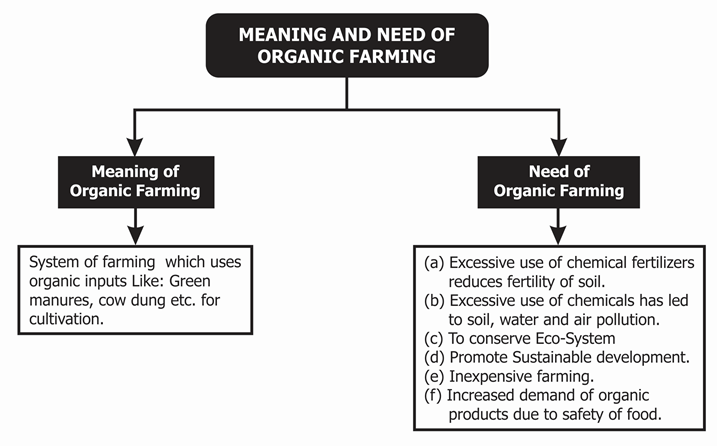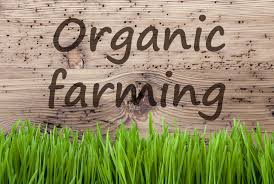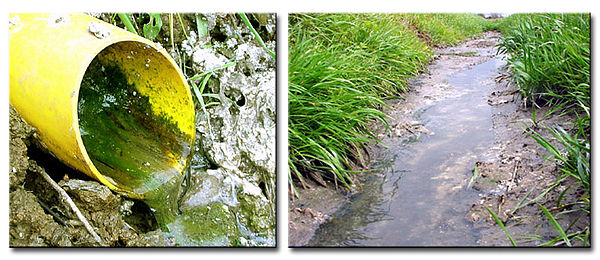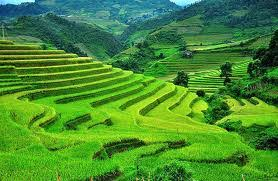USEFULNESS OF ORGANIC FARMING
When you go to the produce section at a store, you see signs for organic products. They tend to be more expensive than non-organic, but they look similar. What are the benefits of organic farming on the environment and why is there a difference?
A majority of produce at supermarkets is likely non-organic — which means getting the product from the farm to the market isn’t as regulated as organic fruits and vegetables. While each practice results in fresh items, organic products tend to be safer for the environment.
Meaning and Importance of Organic Farming

Benefits of Organic Farming on the Environment Cannot Be Ignored
Organic farming strives to improve the health of the environment and helps the environment. It relies on managing the ecosystem rather than depleting it. Farmers in the organic realm must abide by federal regulations to ensure the “organizers” of the products they’re putting on the market.
The benefits of organic farming on the environment are immense, so this article will focus on just some of the most impactful.
Benefits of Organic Farming
1. Prohibits Use of Harmful Pesticides
For farming to be organic, harmful chemicals and pesticides are a no-go. Naturally, there are no pests. Humans labeled certain insects, animals or invasive plants as pests because they hinder the amount of food produced or are a general nuisance to humans. To manage pests, humans have created pesticides, which have harmful effects on the environment.
Pesticides are used throughout the United States, whether it be in industrial farming or a backyard garden. They have lasting effects, including contamination of the soil, water and air.
Therefore, organic farmers don’t rely on harmful pesticides or chemicals to control pests. Instead, they aim to control pests through more natural methods like cover crops, composting and crop rotation.
2. Maintains a Healthy Soil
3. Reduces Erosion
4. Provides Cleaner Water
Water is necessary for survival for humans, animals and plants. When access to clean water is restricted, everyone suffers. Non-organic farming practices tend to contribute most to the water pollution problem.
A lack of clean water is a real danger. Organic farming helps keep the water supply safe and clean because it doesn’t use harmful chemicals. One of the primary sources of water pollution comes from agricultural soils when water runs off into rivers and streams.
Organic farmers mulch and amend soils to prevent runoff, which in turn conserves water. Additionally, they watch their water usage for irrigation.
5. Limits Non-Renewable Energy Use
Non-organic farming practices contribute to climate change. In each step of the process from farm to fork, greenhouse gases are likely emitted into the atmosphere. The fertilizers used directly put off emissions, the equipment to plant and harvest crops rely on fossil fuels, and agricultural animals eat food that contributes to climate change.
In organic agriculture, non-renewable energy sources are highly regulated. Plus, it slows climate change by reducing carbon emissions.
6. Discourages Algae Blooms
Algal blooms can sometimes be harmful to the environment. They can affect the health of humans and the life in the water. Often, they occur when runoff from farms carry chemicals and fertilizers. They grow out of control and are difficult to get rid of.
In addition to harming the environment, they damage the economy. Those who rely on marine or lake work for a living cannot work with algal blooms. Organic farming doesn’t use those harmful fertilizers which feed and cause algae blooms.
7. Stimulates Biodiversity
The more diversity on a farm, the better — and organic farmers understand this principle. With more biodiversity, the farm is more stable and can ward off invasive species.
A mixture of plants, animals and microorganisms promotes soil and animal health as well. This is because they can work together to prevent disease and erosion, which eradicates the need for chemical fertilizers and pesticides.












Comments
Post a Comment